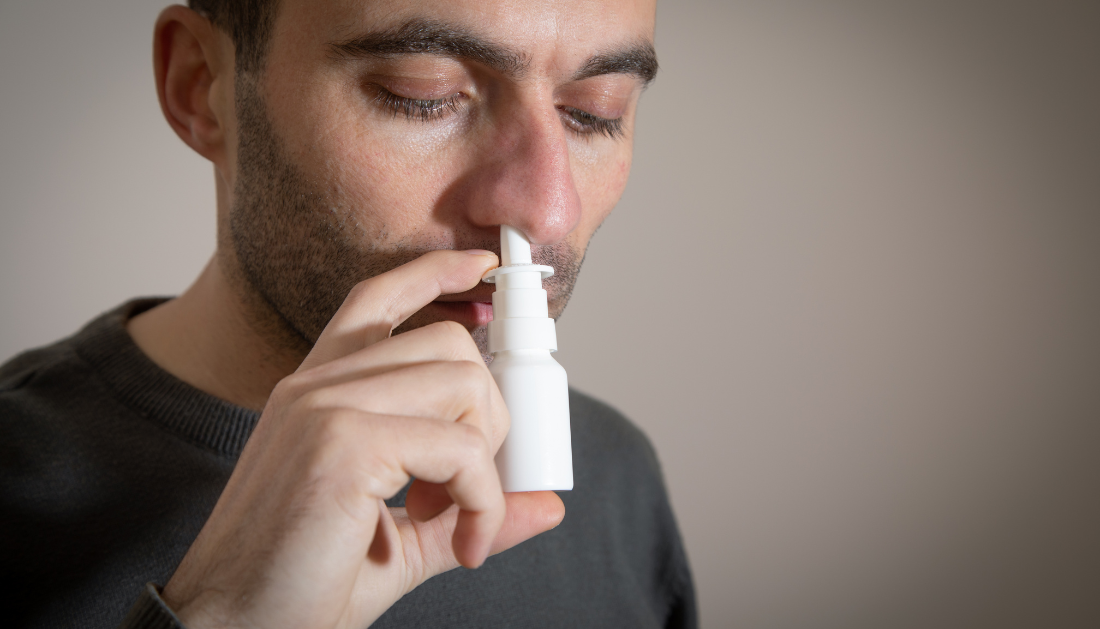

The United States may soon have access to an epinephrine nasal spray for the treatment of severe allergic responses.
On Friday, the FDA declared that the nasal spray known as Neffy had been approved. It is intended for adults with type 1 allergic reactions, which include the potentially fatal illness known as anaphylaxis, as well as children weighing at least 66 pounds. Breathing or swallowing difficulties, skin symptoms like as hives and swelling, stomach concerns such as cramps or nausea, and heart problems such as a drop in blood pressure and rapid heartbeat are all warning signs.
An aberrant immune system reaction, frequently brought on by food, medicine, or insect stings, is what causes allergic responses. Up until now, the only way to treat anaphylaxis was to inject epinephrine into the thigh, usually with an EpiPen or other automatic injector pen. An estimated 2% of Americans are thought to have a lifelong risk of developing anaphylaxis.
According to ARS Pharma, the company that makes Neffy, the medication should be accessible in eight weeks. Neffy will set patients with commercial insurance back $25 for two one-time use devices. ARS is offering Neffy for $199 cash if you don’t have insurance or your insurance won’t cover it. It might be provided for free to those without insurance who have run out of other options, the business stated in a statement.
Neffy is administered as a single dose via nasal spray. Four tests conducted on 175 healthy adults demonstrated that the medication could produce a blood epinephrine level comparable to a shot, along with a comparable rise in heart rate and blood pressure. Blood concentration levels following neffy use in children above 66 pounds were found to be comparable to those in adult users of the product.
Anaphylactic shock can occur when a person’s blood pressure falls too low, and enlarged bronchial tissue can cause unconsciousness. In cases of anaphylactic shock, immediate access to life-saving care is required.
Neffy may not be safe for some persons with certain medical problems or sulfite allergies. The FDA urged people with certain nasal conditions or a history of nasal surgery to consult with a healthcare provider before using the product.
A prior press release from ARS Pharma regarding their endeavors to obtain FDA approval for neffy underscored the significance of providing a needle-free therapeutic alternative.
“While epinephrine autoinjectors have been shown to be highly effective, there are well published limitations that result in many patients and caregivers delaying or not administering treatment in an emergency situation,” the company said.
These restrictions include needle phobia, immobility, security issues, and more.
Only 3.2 million of the approximately 40 million Americans who suffer from type 1 responses had a prescription for an epinephrine injection pen last year, according to the business.
“More than half of patients or caregivers delay or fail to administer the device when needed in an emergency, even if they carry an autoinjector,” the business stated.
Source: ARS Pharmaceuticals
more recommended stories
 Red Blood Cells Improve Glucose Tolerance Under Hypoxia
Red Blood Cells Improve Glucose Tolerance Under HypoxiaKey Takeaways for Clinicians Chronic hypoxia.
 Nanoplastics in Brain Tissue and Neurological Risk
Nanoplastics in Brain Tissue and Neurological RiskKey Takeaways for HCPs Nanoplastics are.
 AI Predicts Chronic GVHD Risk After Stem Cell Transplant
AI Predicts Chronic GVHD Risk After Stem Cell TransplantKey Takeaways A new AI-driven tool,.
 Red Meat Consumption Linked to Higher Diabetes Odds
Red Meat Consumption Linked to Higher Diabetes OddsKey Takeaways Higher intake of total,.
 Pediatric Crohn’s Disease Microbial Signature Identified
Pediatric Crohn’s Disease Microbial Signature IdentifiedKey Points at a Glance NYU.
 Nanovaccine Design Boosts Immune Attack on HPV Tumors
Nanovaccine Design Boosts Immune Attack on HPV TumorsKey Highlights Reconfiguring peptide orientation significantly.
 High-Fat Diets Cause Damage to Metabolic Health
High-Fat Diets Cause Damage to Metabolic HealthKey Points Takeaways High-fat and ketogenic.
 Acute Ischemic Stroke: New Evidence for Neuroprotection
Acute Ischemic Stroke: New Evidence for NeuroprotectionKey Highlights A Phase III clinical.
 Statins Rarely Cause Side Effects, Large Trials Show
Statins Rarely Cause Side Effects, Large Trials ShowKey Points at a Glance Large.
 Anxiety Reduction and Emotional Support on Social Media
Anxiety Reduction and Emotional Support on Social MediaKey Summary Anxiety commonly begins in.

Leave a Comment